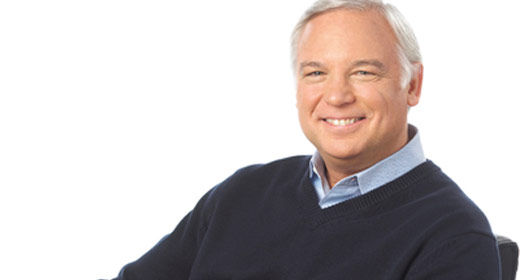by Nanci Hellmich: One reason some people aren’t as successful as they’d like is they haven’t decided what they want, says Jack Canfield,
co-creator of the Chicken Soup for the Soul series. “They are living their life by default and not by design.” If you’re trying to figure out what you want out of life, ask yourself: “If I could live my ideal life, what would I be doing?” says Canfield, author of The Success Principles: How to Get from Where You Are to Where You Want to Be, now in the 10th-anniversary edition. Or think of someone whose life and work you admire and then create a version of it for yourself, he says.
He also advises making a list of 20 things you love to do, and then think of ways you can make a living doing some of them. “I have a friend who likes to travel, and now she takes high school students around the world. Another woman I know loves to surf, and she teaches high-level business women how to surf in Hawaii.”
In his book, Canfield outlines 67 principles for success and shares stories from people who applied those principles to their lives. Canfield says he learned many of his ideas from his mentor, W. Clement Stone, a self-made multimillionaire. Canfield talked with USA TODAY about some of the success principles:
• Take 100% responsibility for your life. You are the person responsible for the quality of the life you live, he says. Many people want to blame others — Congress, their parents, their children, their boss, their employees — for the parts of their lives they don’t like. It’s easier to blame somebody else than to change our behavior and thinking, he says. “About 85% of our behavior is habit, and it takes about 100 days to change a habit or behavior. So the key is to change your behavior for a different outcome.”
Canfield suggests considering this formula: Event plus response equals outcome. If you don’t like the outcomes you are currently getting, you can change your response to the events until you get the outcomes you want.
• Take action. When you take action, you trigger all kinds of things that will inevitably carry you to success, he says. “Most successful people I know have a low tolerance for excessive planning and talking about it. They want to get started.”
• Develop four new success habits a year. Change one habit at a time. It takes about three months to change a habit, Canfield says. “Right now I am working on drinking 12 glasses of water a day because I get so locked into what I’m doing that I’m under hydrated.”
He suggests asking others to help you objectively identify what they believe are your limiting habits. Some bad habits you might need to break: procrastinating; not delivering on promised documents and services; arriving late for meetings and appointments; talking over others’ comments instead of listening; choosing work over time with your children.
• Visualization. “New-Agey,” but visualization is the act of taking a few minutes every day to imagine your goals as already complete, he says. “Most successful people do it. A visionary is always envisioning the future; they can’t get it out of their heads.”
• Ask, ask, ask. And reject rejection. “Most people are afraid of rejection, so they don’t ask,” he says. They are afraid of looking needy, looking foolish and looking stupid. “Chicken Soup for the Soul was rejected by 144 publishers,” he says. “If we had given up after 100 publishers, I wouldn’t be talking to you now.” The series now has 250 titles and has sold more than 500 million copies in 47 languages.
• Commit to constant and never-ending improvement. Successful people are extremely curious and commit to learning something new every day, he says. They are often voracious readers, he says. “I do something daily called the Hour of Power — 20 minutes of meditation, 20 minutes of exercise and 20 minutes of reading. If you do that, basically you are going to be calmer, healthier and more aware when you interact with people.”
• Face what isn’t working. “A lot of people don’t deal with what’s not working, because it means they’d have to do something that is uncomfortable. They stay in jobs they don’t like because they think they can’t get another one, but instead they need to get out and get training to get another one.”
If you gave up one hour of television a day, that would be 365 hours a year or 9½ 40-hour weeks of additional time to exercise, read, go back to school for your master’s degree and take online courses, Canfield says.
• Be a class act. “Class acts leave places better than they find them. They are always positive. They are willing to help,” he says. Some examples of what you should strive for: Maintain dignity and grace under pressure. Counteract meanness, pettiness and vulgarity.
• Find a way to serve. Research shows that people who volunteer live longer, recover from illness faster and report being happier, he says. “When you serve others, it gives you a depth of happiness that cannot be experienced from any other activity.”










































